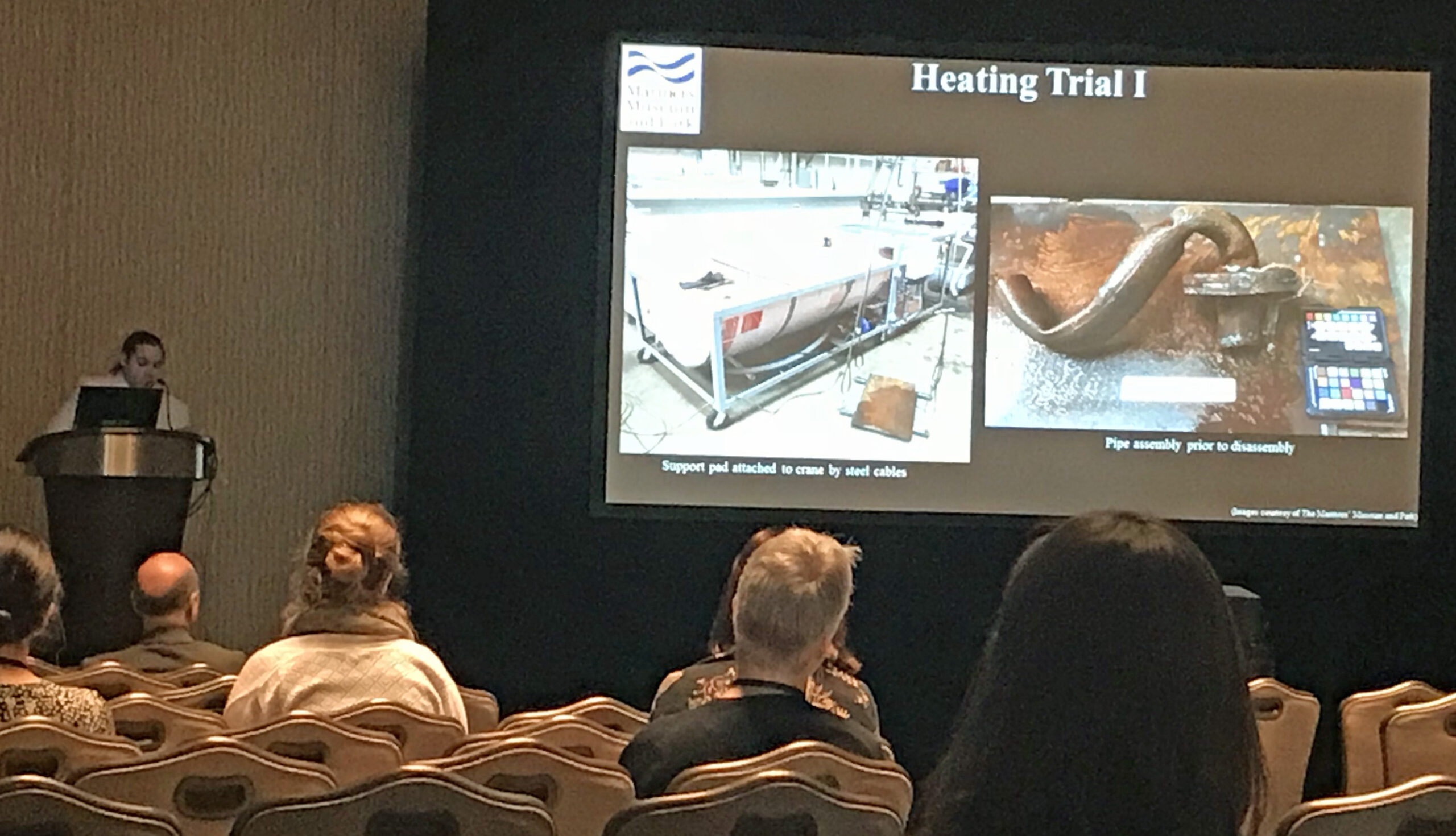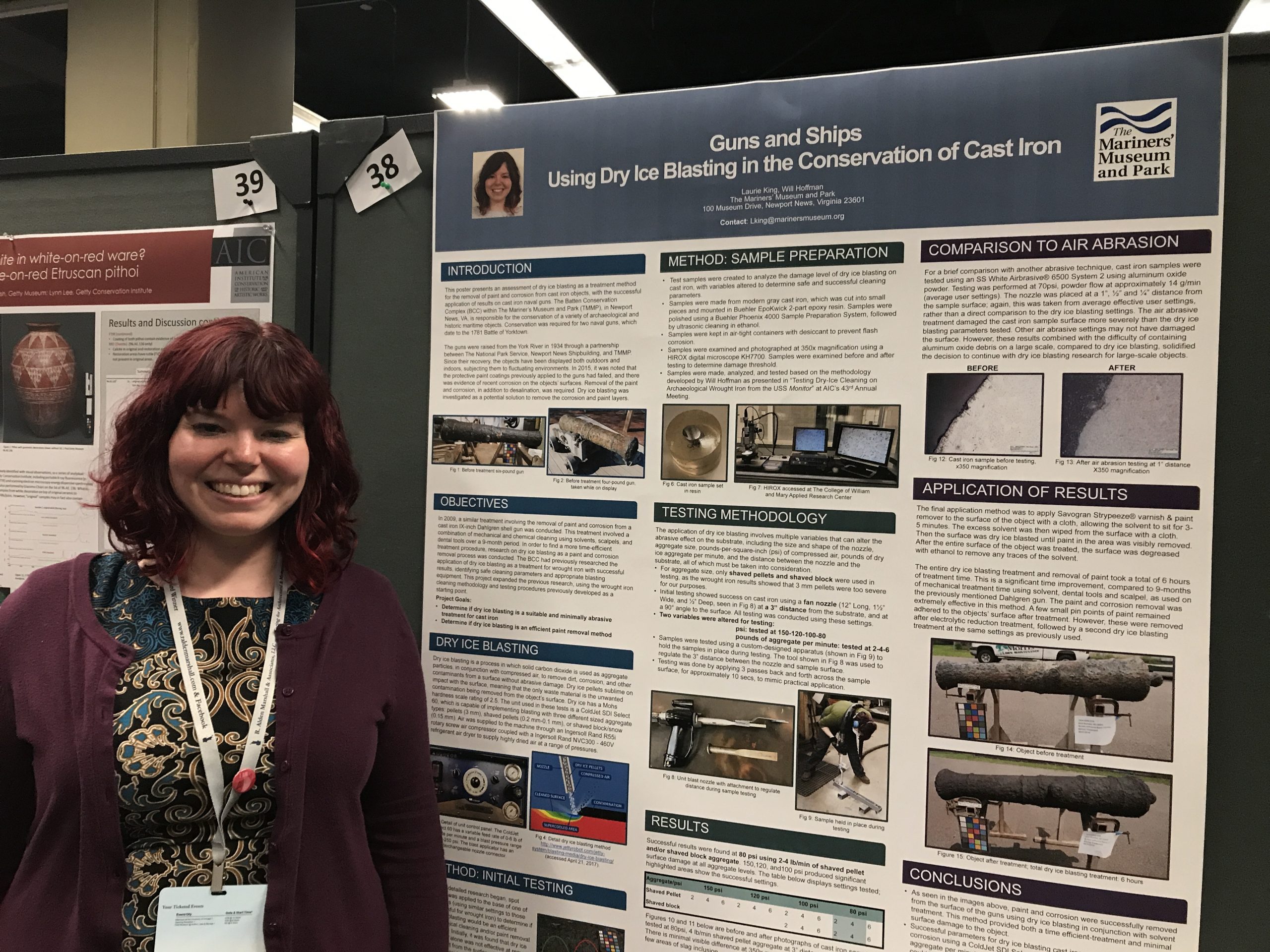If you’ve ever read any of our blog posts about conservation, taken a lab tour, or talked to a conservator at any museum, you might have heard one of us mention “AIC” or the American Institute for Conservation. AIC is a national organization with thousands of members, including conservators and other museum professionals. It is a vital way for conservators to share information. So for this blog post, we thought we’d tell you a bit about what AIC is, how it helps us inform conservation decisions at The Mariners’ Museum and Park, and what we do at the Museum to contribute to AIC.

AIC holds an annual conference, which is usually located in a different city every year, giving conservators opportunities to not only attend lectures, but visit museums and conservation labs across the country. The conservation department at the Mariners’ makes an effort to present any new research produced at the annual conference. (You may have read about unique treatments we have been conducting in the conservation department in this blog before.) We make a concentrated effort to share our results at the annual conference, so that other conservators can benefit from our research. Even if experiments do not yield the results we were hoping for, the information helps other conservators when making treatment decisions. Additionally, we often find colleagues from other museums who want to collaborate in continued research through AIC conferences.

This year, due to COVID-19, AIC has made the conference virtual, with lectures presented online over the course of the summer. The usual conference is about 5 days long, and jam-packed with interesting content. So, the switch to a virtual conference spread out over time has actually been a boon to many attendees. It allows attendees to view a higher number of lectures, and even go back to review any particularly relevant lecture. The virtual conference has also cut down on the carbon footprint of AIC this year.

During the virtual conference, several of our conservators will be presenting. Molly McGath is presenting in the Research and Technical Studies Session, discussing what we are learning about the composition and likely provenance of the original rubber from USS Monitor, as well as how it is aging today. This is part of a larger research project with several conservation department staff members, as we study the conservation and degradation of waterlogged rubber. Additionally, Molly and Paige Schmidt are serving on a discussion panel, concerning the use of plastics as storage materials in museums. Erik Farrel is presenting his research, design, and operation of the equipment we used to clean the Dahlgrens back in February and March, sharing that info with the rest of the profession. Will Hoffman is presenting on the turret re-support project last year. I am presenting a poster in the virtual poster session concerning the conservation of waterlogged rubber gaskets.
While the annual conference is always informative, AIC is a resource conservators turn to throughout the year. AIC hosts a global online community, which encourages members to post questions about treatment decisions or just general news and updates in the museum world. AIC also hosts a number of specialty groups for those with niche interests, such as those who deal only with books and paper. There are additional specialty groups, including a networking group for students who are just beginning their career, which helps students find established mentors in the field. And the Diversity, Equity and Inclusion group, which works to include diverse voices and thoughts in the conservation community. AIC also produces a newsletter and a journal. The journal publishes scientific articles relating to conservation, and book reviews on relevant literature. The newsletter publishes information on happenings in the conservation community, health and safety information, etc.
AIC is a useful and informative community for not just conservators, but many museum professionals. On a final note, it can also be a great resource event for those not in the museum world. For anyone interested, AIC is also a resource for anyone who wants to learn more about conservation or wants to find a conservator to consult with on their own historic items or family heirlooms.